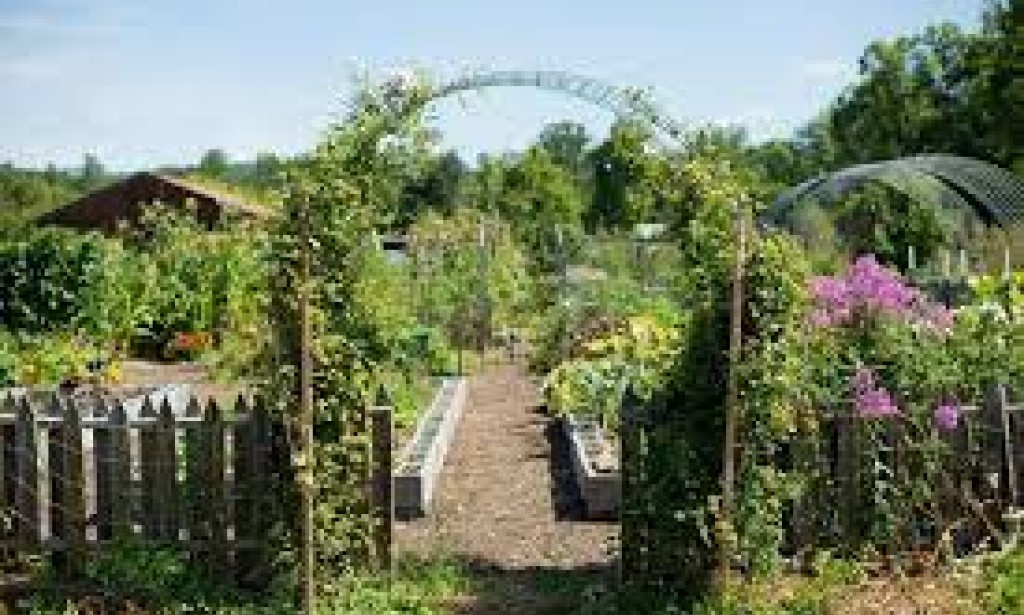Self-Sufficiency and Sustainability:
At its core, homesteading revolves around self-reliance and sustainability. Homesteaders aim to produce a significant portion of their food and resources on their own land, reducing reliance on external sources and embracing sustainable practices like permaculture, composting, and regenerative agriculture.

Rural or Semi-Rural Living:
Homesteaders often seek rural or semi-rural settings to establish their homesteads. These areas provide the space and resources necessary for growing food, raising animals, and fostering a more connected relationship with the land.
Growing and Preserving Food:
Growing one's food is a central aspect of homesteading. Homesteaders cultivate gardens, orchards, and sometimes small-scale farms, prioritizing heirloom or organic varieties. They also engage in food preservation techniques like canning, fermenting, and drying to store surplus produce for later use.
Animal Husbandry:
Raising animals is another hallmark of homesteading. This might include keeping chickens for eggs, goats for milk, bees for honey, or larger animals like cows or pigs for meat. Homesteaders often prioritize ethical and humane treatment of animals, integrating them into their self-sufficient lifestyle.
Traditional Skills and DIY Projects:
Homesteading involves embracing traditional skills such as woodworking, carpentry, sewing, and home repairs. DIY projects, whether building shelters, making furniture, or crafting tools, are common activities that foster self-reliance and resourcefulness.
Off-Grid Living and Alternative Energy:
Some homesteaders opt for off-grid living, utilizing alternative energy sources like solar panels, wind turbines, or hydroelectric systems. This reduces reliance on public utilities, promoting independence and sustainability.
Seasonal and Nature-Centric Living:
Homesteaders live in harmony with the seasons, embracing seasonal cycles for planting, harvesting, and various homestead activities. This lifestyle encourages a deep appreciation for nature's rhythms and teaches adaptability to the changing environment.
Minimalism and Frugality:
Homesteading often embraces minimalism and frugality. Homesteaders tend to value quality over quantity, repurpose or upcycle items, and prioritize needs over excessive consumerism. This approach aligns with sustainability and reducing environmental impact.
Community and Collaboration:
While homesteading emphasizes self-sufficiency, it also fosters community connections. Homesteaders often engage in bartering, communal work projects, or local markets to exchange goods, knowledge, and support with like-minded individuals.
Education and Learning:
Homesteading involves continuous learning and education. Homesteaders explore various aspects of agriculture, animal husbandry, food preservation, and traditional skills through books, workshops, online resources, and often by sharing knowledge within the homesteading community.
Environmental Stewardship and Conservation:
Homesteaders prioritize environmental stewardship and conservation. Practices such as soil conservation, water management, and land regeneration contribute to maintaining a healthy ecosystem on their land.
Challenges and Rewards:
Homesteading presents both challenges and rewards. Challenges include the demanding physical labor, unpredictable weather conditions, and a steep learning curve, but the rewards encompass a deep sense of fulfillment, connection to the land, and a lifestyle rich in simplicity, authenticity, and purpose.
Homesteading embodies a way of life deeply rooted in self-sufficiency, sustainability, and a profound connection with nature. It's a lifestyle that values simplicity, resilience, and a return to traditional skills and practices, fostering a harmonious relationship with the environment while embracing the rewards of a more intentional and connected way of living.
Heritage and Heirloom Preservation:
Homesteaders often prioritize preserving heritage breeds of plants and animals. They recognize the importance of maintaining genetic diversity and cultural heritage by cultivating heirloom seeds, rare plant varieties, or heritage livestock breeds that are well-suited to their local environment.
Holistic Health and Natural Remedies:
Embracing natural and holistic health practices is common among homesteaders. They often cultivate medicinal herbs, create natural remedies, and prioritize a lifestyle that promotes overall well-being, reducing reliance on conventional medicine when possible.
Cottage Industries and Entrepreneurship:
Many homesteaders develop cottage industries or small businesses based on their homesteading activities. This might include selling surplus produce, handmade crafts, artisanal products, or offering workshops and educational resources related to homesteading practices.
Permaculture and Regenerative Practices:
Homesteaders frequently embrace permaculture principles and regenerative farming practices. These approaches focus on designing agricultural systems that mimic natural ecosystems, promoting biodiversity, soil health, and sustainable land management.
Resilience and Adaptability:
Homesteading fosters resilience and adaptability in the face of challenges. Learning to work with nature's unpredictability, adapting to changing conditions, and problem-solving in resourceful ways are integral aspects of the homesteading lifestyle.
Generational Knowledge and Passing Down Traditions:
Homesteading often involves passing down knowledge and traditions through generations. Families share skills, techniques, and values related to sustainable living, ensuring the continuity of these practices within their family units.
Homesteading and Education for Children:
Many homesteading families prioritize hands-on education for their children. Kids actively participate in daily chores, learn about food production, and gain practical skills, fostering a deep connection to nature and promoting a sense of responsibility and self-reliance.
Celebrating Seasons and Festivities:
Homesteaders often celebrate seasonal festivals and traditions, aligning their lifestyle with nature's cycles. These celebrations mark important agricultural or natural milestones and create opportunities for community gatherings and shared experiences.
Documenting and Sharing Knowledge:
Homesteaders frequently document their experiences, successes, and failures through journals, blogs, or social media. This documentation serves as a resource for other aspiring homesteaders, fostering a sense of community and sharing valuable knowledge.
Personal Growth and Fulfillment:
Homesteading goes beyond a lifestyle choice; it often leads to personal growth and fulfillment. The challenges, rewards, and closeness to nature contribute to a deeper sense of purpose, contentment, and satisfaction with life.
Homesteading represents a way of life that embodies values of self-reliance, sustainability, and a profound connection to the land. It's a lifestyle that continuously evolves, integrating traditional wisdom with modern practices, fostering resilience, and nurturing a sense of harmony with nature and community.



You must be logged in to post a comment.